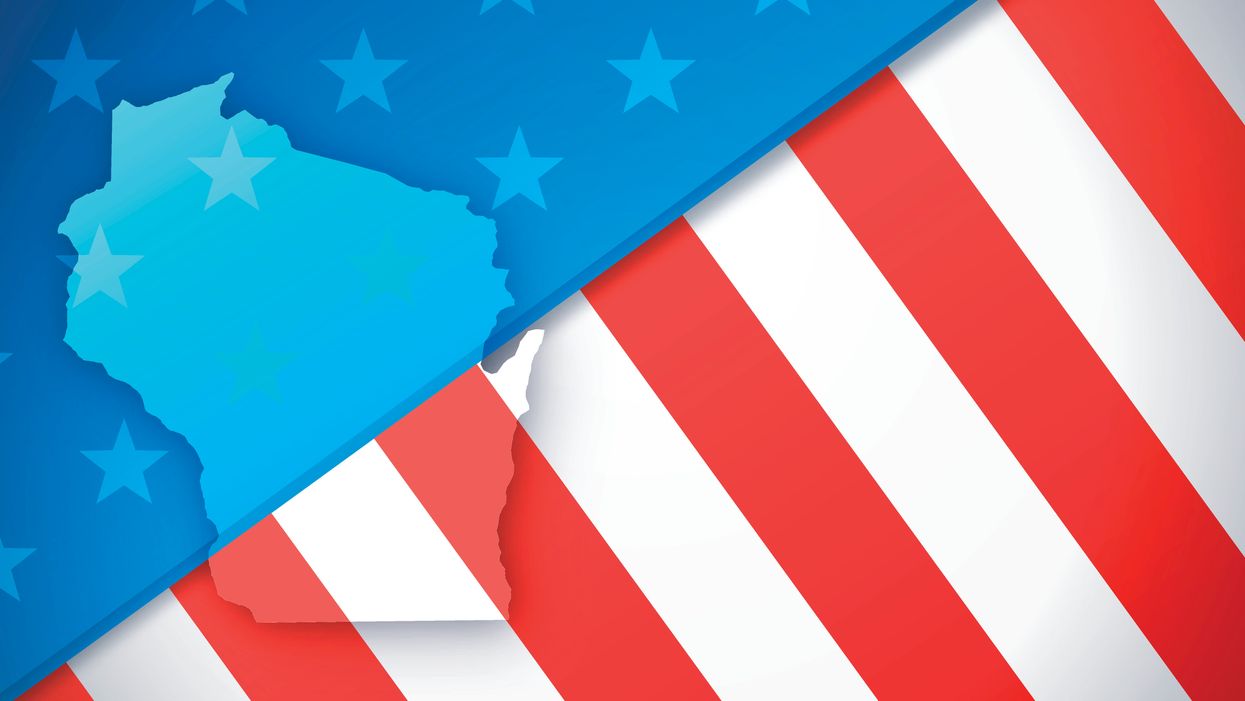Profound election complications have been averted in Wisconsin thanks to its judicial system, an exception to the trend of court decisions making voting during the pandemic more problematic in presidential battlegrounds.
Wisconsin's Supreme Court, which pushed the state's election toward fresh chaos last week, reversed course on Monday. The justices ruled the Green Party's ticket will not appear on the ballot, meaning more than a million vote-by-mail packets can be distributed and won't be delayed by a massive and expensive reprinting — and that thousands more ballots already delivered won't need to be replaced.
While the decision was an unexpected judicial victory for the cause of a smooth and comprehensive election despite the coronavirus — the good-governance movement's overriding objective for the year — it was a defeat for a long-term goal of many of those same democracy reformers: breaking the two-party duopoly, which is behind so much governing dysfunction, by propping up independent and outsider campaigns.
So far Green nominee Howie Hawkins, a retired Teamster, and running mate Angela Walker have qualified for the ballot in only about half the states, meaning they are mathematically out of the running. But their progressive presence is nonetheless concerning to Democrats, who worry the Greens could take enough votes away from Joe Biden in a few tossup states to provide President Trump a narrow path to victory. For the same reason, law firms and donors aligned with the GOP have been working to get the Greens more ballot access.
Green candidate Jill Stein took 31,000 votes in Wisconsin in 2016, when Trump secured the state's 10 electoral votes by less than 23,000 votes.
The high court ruled 4-3, with the justices deviating slightly from their usual lockstep party-line votes in election cases. One Republican, who had joined the all-GOP majority that called a halt to the ballot printing Thursday, joined the three Democrats in deciding Hawkins and Walker had waited too long to file their appeal. The state Elections Commission denied them placement on the ballot four weeks ago because of address discrepancies on their petitions.
Reversing that decision now, the court said, would cause "confusion and undue damage to both the Wisconsin electors who want to vote and the other candidates in all the various races on the general election ballot."
The decision signaled a similar fate for another outsider appealing his exclusion from the ballot, rapper Kanye West.
The ruling also means that the local clerks who run elections across the state can meet Thursday's state deadline for beginning to send out mail-in ballots, and Saturday's federal deadline for sending them to Wisconsinites overseas or in the military.
Applications have already been received from three of every eight voters in the state — more than 1 million in total, smashing Wisconsin's records for absentee voting. At the time the court put a hold on the process, packets of ballots and return envelopes had already been prepared by local clerks to fulfill more than a third of those requests, at least 378,000, the Wisconsin Election Commission estimated. At least 75,000 had already gone out the door.
Local election administrators had flooded social media with worry that they would not be able to find printers, let alone the money to pay them, had the high court ordered all new ballots that included the Hawkins-Walker ticket.
Monday was also the first day when local officials in another battleground, Pennsylvania, would normally be allowed to send out absentee ballots. But they could not, the state said, until there's resolution of lawsuit in which the Democrats are arguing against putting the Green candidates on the ballot. They will also be left off the ballot in Montana after Supreme Court Justice Elena Kagan denied their appeal Monday night.
The surprise vote on the Wisconsin Supreme Court came from Brian Hagedorn, who had been counsel to the previous governor, Republican Scott Walker.
While he unexpectedly reversed the course of what had looked, as recently as Thursday, like a totally partisan legal dispute, two other court decisions with partisan overtones that have restricted voting in other swing states in the past week look highly unlikely to be reversed in the seven weeks before Election Day.
A federal appeals court ruled Friday that an estimated 774,000 Floridians who have completed felony sentences will have to pay fines and fees before being allowed to vote. The decision reversed a lower court ruling that said the state's law to that effect, enacted after a referendum in 2018 returned the franchise to most people with serious criminal convictions, was akin to an unconstitutional poll tax.
And another federal appeals court on Thursday upheld a state law in Texas that allows no-excuse voting only for people older than 65, which the Democratic Party argues is illegal age dicrimination against younger voters.




















Trump & Hegseth gave Mark Kelly a huge 2028 gift